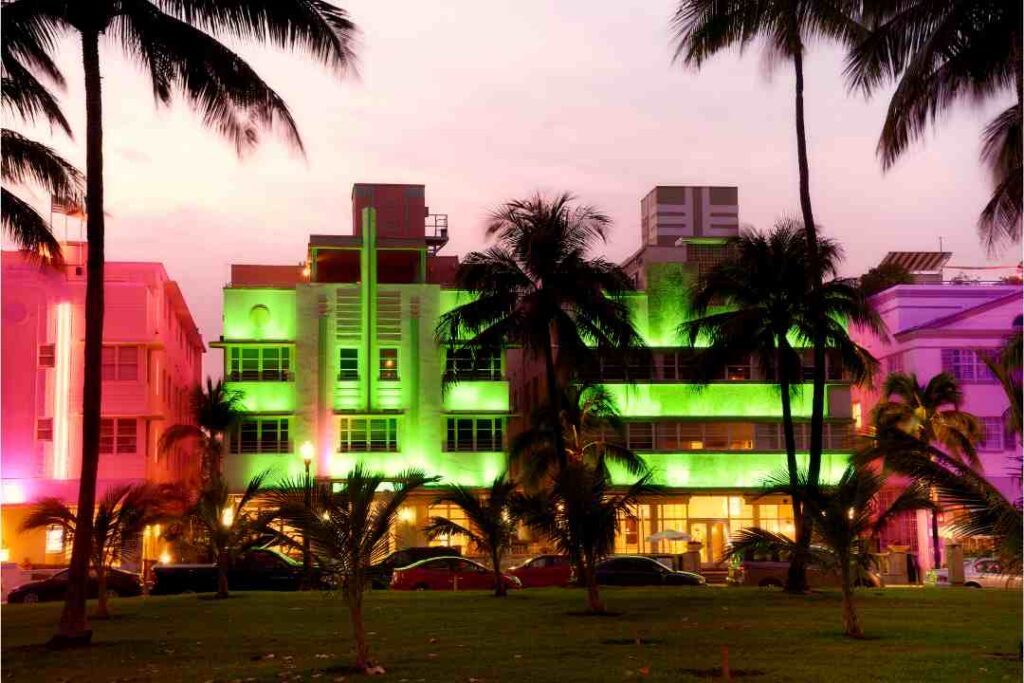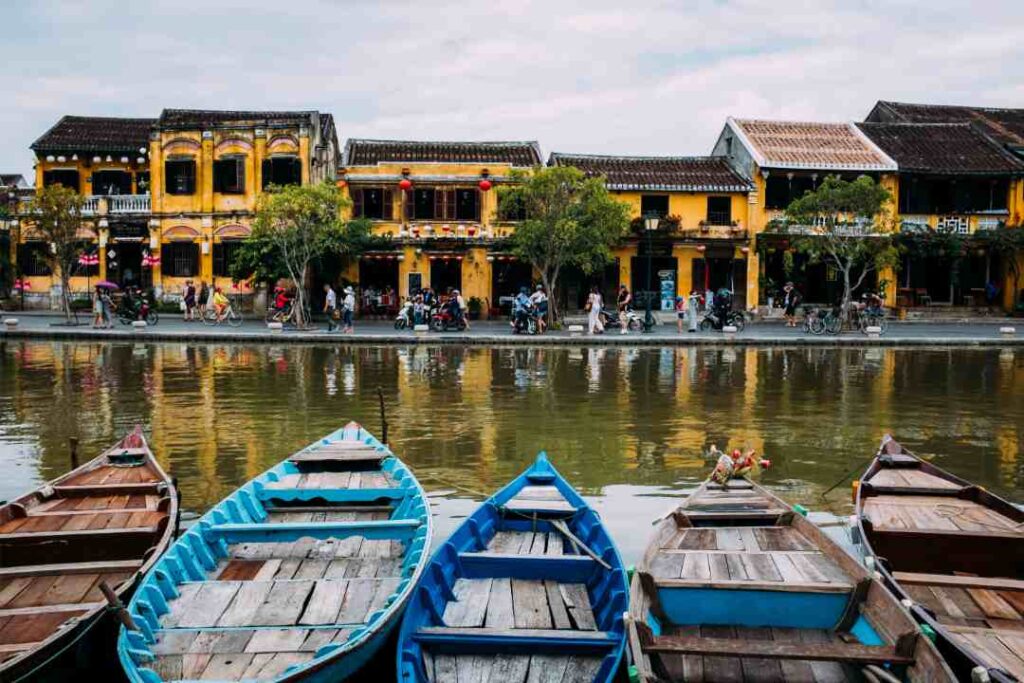Vietnam is a captivating destination for travelers from all over the world. With its stunning landscapes, rich culture, and mouth-watering cuisine, it’s no wonder that more and more people are considering Vietnam as their next travel destination. However, just like any other country, safety is a top concern for tourists. In this article, we will explore Vietnam’s safety profile, discuss safety considerations for tourists, provide safety tips for traveling in Vietnam, and examine Vietnam’s response to the COVID-19 pandemic.
Understanding Vietnam’s Safety Profile
Crime Rates in Vietnam
When it comes to crime rates, Vietnam is generally a safe country to visit. Petty crimes such as pickpocketing and non-violent theft do occur, particularly in crowded tourist areas. It is important to be vigilant and take necessary precautions, such as keeping valuables secure and being aware of your surroundings.
Violent crimes against tourists are rare, but it is always recommended to stay cautious and avoid walking alone in secluded areas, especially at night. As a general rule, practicing common sense and using the same safety precautions you would in any unfamiliar destination should suffice.
While the majority of locals are friendly and welcoming, it is worth noting that scams targeting tourists can occur. These scams can range from overcharging for goods and services to more elaborate schemes. It is advisable to research common scams in Vietnam and be cautious when dealing with unfamiliar vendors or individuals offering unsolicited assistance. Click here to read about Discovering the Allure of Vietnamese Romance and Nightlife in Ho Chi Minh City and Danang.
Political Stability in Vietnam

Vietnam is known for its political stability and low risk of civil unrest. The government maintains a strong presence throughout the country, ensuring a safe environment for both locals and tourists. However, it’s always wise to stay informed about any political developments or demonstrations that may be taking place during your visit and avoid participating in any political activities.
The Vietnamese people have a deep respect for their cultural heritage and traditions, and it is important for visitors to be mindful of local customs and practices. This includes being respectful when visiting religious sites, dressing modestly in certain areas, and refraining from any behavior that may be considered disrespectful or offensive.
Health and Medical Safety in Vietnam
Vietnam has made significant improvements in its healthcare system in recent years. Major cities have well-equipped hospitals and medical facilities that can provide quality care. However, medical services in rural areas may be limited, so it’s essential to have travel insurance that covers medical emergencies while traveling in Vietnam.
It is also advisable to take necessary health precautions before your trip, including up-to-date vaccinations and taking proper medications if needed. Drinking bottled water and practicing good hygiene can help prevent common travel-related illnesses.
While Vietnam is generally safe in terms of infectious diseases, it is important to be aware of certain health risks. Mosquito-borne diseases such as dengue fever and malaria are present in some parts of the country, particularly during the rainy season. Taking precautions such as using insect repellent and wearing protective clothing can help reduce the risk of mosquito bites.
Additionally, the traffic in Vietnam can be chaotic, especially in major cities. It is important to exercise caution when crossing the road and to be aware of local traffic customs. Using designated pedestrian crossings and following the lead of locals can help ensure your safety in this bustling environment.
Safety Considerations for Tourists in Vietnam
When planning a trip to Vietnam, it is essential to consider the safety aspects that may affect your experience. By being aware of common scams, understanding road safety, and practicing food and water safety, you can ensure a smooth and enjoyable journey.
Common Scams Targeting Tourists
Like many popular tourist destinations, scams can be an issue in Vietnam. It is crucial to familiarize yourself with the common scams that target tourists to avoid falling victim to them. Some of the prevalent scams include overcharging for goods or services, fake taxi meters, and misleading tour packages. Visit https://www.independent.co.uk/travel/news-and-advice/package-holidays-refunds-cancellations-tour-operators-b1842405.html to read about Package holiday firms misleading consumers over refunds, investigation finds.
To protect yourself from scams, it is recommended to conduct thorough research on reputable businesses and service providers. Reading reviews and seeking recommendations from fellow travelers can help you make informed choices. Additionally, negotiating prices beforehand and agreeing on a fair deal can prevent unexpected overcharges. When it comes to transportation, opt for trusted services to ensure a reliable and safe experience.
Road Safety and Transportation
Road safety is a significant concern in Vietnam, particularly in larger cities where traffic can be chaotic. Motorbike accidents are unfortunately a common occurrence, making it crucial to prioritize safety when renting a motorbike.
If you decide to explore Vietnam on a motorbike, always wear a helmet, drive defensively, and adhere to local traffic laws. It is also advisable to familiarize yourself with the road conditions and traffic patterns of the specific areas you plan to visit. Taking extra precautions, such as avoiding rush hour traffic and staying alert while on the road, can significantly reduce the risk of accidents.
For those who prefer not to drive, there are alternative transportation options available. Grab, a popular ride-hailing app, operates in Vietnam and offers a convenient and reliable way to get around. Reputable taxi companies are also a viable choice for safer transportation, as they adhere to regulations and provide licensed drivers.
Food and Water Safety
Vietnam is renowned for its delicious street food culture, offering a wide array of culinary delights. However, it is essential to exercise caution when dining out to avoid any potential health issues.
When choosing where to eat, opt for busy food stalls with high turnover. This ensures that the food is fresh and continuously replenished, reducing the risk of foodborne illnesses. It is also advisable to observe the cleanliness of the food preparation area and the hygiene practices of the vendors.
When it comes to consuming fruits and vegetables, it is best to stick to those that have been thoroughly cooked or peeled. Raw or unpeeled produce may carry a higher risk of contamination, so it is wise to err on the side of caution.
Drinking safe water is crucial to prevent gastrointestinal issues. It is recommended to stick to bottled water and avoid tap water, especially in more rural areas. In restaurants, confirm that the ice used in beverages is made from purified water.
By being mindful of food and water safety practices, you can fully enjoy Vietnam’s vibrant culinary scene without compromising your well-being.
Safety Tips for Traveling in Vietnam
Traveling to Vietnam can be an exciting and enriching experience. From the stunning landscapes to the vibrant culture, there is so much to explore in this beautiful country. However, it’s important to prioritize your safety during your trip. Here are some additional safety tips to keep in mind:
Personal Safety Measures
When traveling in Vietnam, it’s essential to take personal safety measures. Keep your belongings secure by using a sturdy backpack or a cross-body bag with a zipper. Avoid displaying expensive items such as jewelry, cameras, or smartphones, as it may attract unwanted attention. Additionally, make use of lockers or hotel safes when available to store your valuables. Stay alert in crowded places, especially in popular tourist areas, and be cautious of your surroundings at all times.
Exploring the streets of Vietnam can be an exhilarating experience, but it’s important to be aware of potential risks. Motorbike theft is quite common in some areas, so if you rent a motorbike, always lock it securely and park it in well-lit areas. Avoid leaving your motorbike unattended for long periods, especially overnight.
Emergency Contacts in Vietnam
Having emergency contacts readily available is crucial in any travel situation. In Vietnam, the national emergency number is 113 for police, 115 for ambulance services, and 114 for fire emergencies. Make sure to have these numbers stored in your phone or written down in case of an emergency. It’s also a good idea to have the contact information for your country’s embassy or consulate in Vietnam.
In case you need medical assistance, it’s important to know that healthcare standards may vary across different regions in Vietnam. While major cities like Hanoi and Ho Chi Minh City have well-equipped hospitals and clinics, rural areas may have limited medical facilities. Consider purchasing travel insurance that covers medical emergencies to ensure you receive the necessary care.
Safe Travel Practices in Urban and Rural Areas
Whether you’re exploring bustling cities or remote rural areas, it’s important to practice safe travel habits. Stick to well-lit and populated areas, especially at night. Avoid walking alone in secluded or dimly lit streets, as it may increase the risk of petty crimes. If you’re unsure about the safety of a particular area, it’s always a good idea to ask locals or your hotel staff for advice.
When it comes to transportation, it’s recommended to use reliable options such as registered taxis or ride-hailing services. Be cautious when using motorbike taxis (xe om) and negotiate the price before starting the journey. If you plan to rent a motorbike, ensure that you have the necessary license and wear a helmet at all times.
Respecting the local customs and traditions is not only important for cultural immersion but also for your safety. Vietnam is a country with strong traditions and customs, and being aware of and following them can help you avoid any misunderstandings or conflicts. For example, when visiting temples or pagodas, it’s important to dress modestly and remove your shoes before entering.
Traveling with a companion can also enhance personal safety. Having someone to watch your back and share the experience with can provide an extra layer of security. If you’re traveling alone, consider joining group tours or connecting with other travelers through online communities to meet like-minded individuals.
By following these safety tips, you can have a memorable and worry-free trip to Vietnam. Remember, safety should always be a priority, allowing you to fully immerse yourself in the beauty and culture of this incredible country.

Vietnam’s Response to COVID-19
Travel Restrictions and Guidelines
As the world grapples with the COVID-19 pandemic, Vietnam has implemented strict travel restrictions and guidelines to keep its citizens and visitors safe. International travel to Vietnam is currently limited, and entry requirements may vary. It is crucial to stay updated with the latest information from reliable sources and adhere to any travel restrictions or quarantine measures in place.
Health and Safety Measures in Public Spaces
Vietnam has implemented various health and safety measures in public spaces to mitigate the spread of COVID-19. These measures may include mandatory face mask usage, temperature checks, and social distancing protocols. It is important to comply with these measures and follow the guidance of local authorities during your visit.
Impact on Tourism Industry
Like many countries heavily reliant on tourism, Vietnam has experienced a significant impact on its tourism industry due to the COVID-19 pandemic. The government has introduced various measures to support the industry and facilitate its recovery. As a responsible traveler, considering the local economy and supporting local businesses can contribute to the revival of Vietnam’s tourism sector. In conclusion, Vietnam is generally a safe country to travel to, but like any destination, it’s important to stay informed and take necessary precautions. By understanding Vietnam’s safety profile, considering safety considerations for tourists, and following safety tips, you can have a memorable and secure trip to this beautiful country. Additionally, staying updated with Vietnam’s response to the COVID-19 pandemic and adhering to travel restrictions and health measures will ensure the safety of both yourself and the local community. So, pack your bags, explore Vietnam, and create unforgettable memories while prioritizing your safety.

